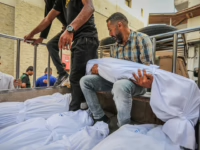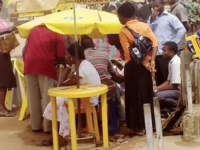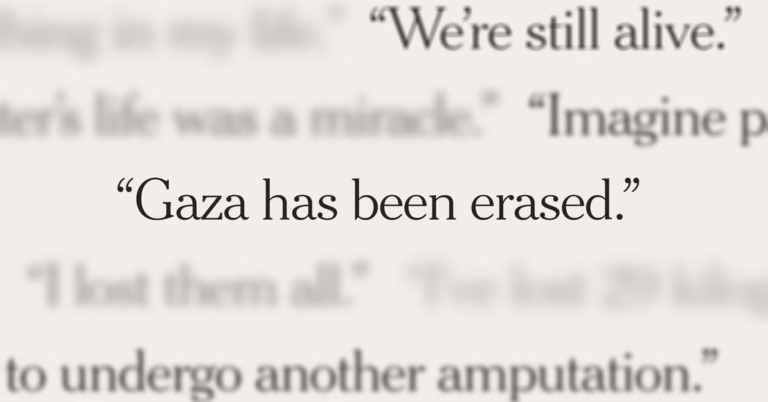Over the past two years, we have engaged with more than 700 individuals in Gaza, and their narratives have left a profound impact on us.
We often found ourselves asking: Have they been able to locate their missing family members? Are their homes still intact? Have they had the chance to bury their loved ones? Were they compelled to flee once more? Are they even alive today?
In an effort to reconnect, we reached out to many of them again. Here is what they shared.
No single story can fully capture the immense suffering endured in Gaza-the near destruction of a community and its homeland.
Yet, through the collective voices of those we interviewed, a clearer picture emerges of how the conflict has devastated those who have lived through it.
They recounted the raw pain of loss, the constant fear of impending airstrikes, and the uncertainty of what tomorrow might bring. They spoke of the first time they fled their homes as Israeli bombs drew nearer, the initial makeshift shelters they erected, and the repeated displacements that followed.
Their accounts reveal the toll on their health, the cries of hungry children, and the relentless search for essentials like baby formula and lentils. They expressed hopes for medical evacuations, a return to education, and reunification with family members.
We attempted to reconnect with many of these individuals. Some did not respond; others’ contact numbers were no longer active. Several had managed to escape Gaza, while tragically, some had lost their lives.
Among nearly 100 people we reached, every single one had suffered loss-be it a family member, a friend, their home, or their hope.
—
“I lost a sister, a brother, and almost 40 relatives. That amount of grief feels overwhelming for a single lifetime.”
– Ismail al-Sheikh (First interviewed January 2025)
“Our existence is a continuous cycle of suffering. We have lost family and are scattered across tents.”
– Hanaa al-Najjar (First interviewed April 2024)
—
When we last spoke with Samar al-Jaja and her nephews-Mohammed, Mahmoud, Ahmed, and Abdullah Akeila-last summer, it had been ten months since their parents and baby sister were killed in an airstrike.
Under a tent at a relief camp, they clung to the hope of returning to Gaza City to see their parents again.
However, upon returning earlier this year, they found only their parents’ bedroom still standing.
The house was empty. The five stood in stunned silence.
“The children said sadly, ‘We wish we were buried with them,'” Ms. al-Jaja, 32, told us recently.
They have never had the chance to grieve properly. Traditional sweets distributed on death anniversaries were unaffordable due to wartime inflation of flour and sugar.
They have not been able to pray at their parents’ graves, as their locations remain unknown.
“Even that closure has been taken from us,” she said.
Ms. al-Jaja spoke from a partially destroyed building in Gaza City where she and her nephews sought refuge.
Days later, Israeli forces launched an incursion into the city, part of an ongoing two-year campaign against Hamas following the militant group’s deadly attack on Israel on October 7, 2023.
Negotiations between Israel and Hamas began in Cairo on Monday, discussing a potential exchange of Israeli hostages for Palestinian prisoners. If successful, this could bring the conflict closer to resolution.
Meanwhile, Palestinians in Gaza continue to struggle for survival.
Ms. al-Jaja and her nephews relocated to another neighborhood to escape the offensive, then fled south. They paid nearly $4,000 to a truck driver to transport half their belongings-“pay or risk death,” the driver warned.
After a 14-hour journey, they returned to the same charity camp they had lived in the previous year, this time without a tent.
Nearly everyone we spoke with has been displaced multiple times, many with no home to return to.
—
“If, God forbid, my family is evacuated, it would be the tenth time since this war began.”
– Nour Barda (First interviewed April 2024)
“We are left with a grim choice: die in Gaza City or be displaced to the south. It breeds helpless rage and humiliation.”
– Montaser Bahja (First interviewed January 2025)
—
Last October, when we met Hammam Malaka and his wife, Najia Malaka, they had been separated for nearly the entire conflict.
Israeli troops had cut northern Gaza off from the south, leaving Hammam trapped in the south with his children Yamen, 6, and Sandy, 4, while Najia was in the north with their daughter Seela, 3, baby Ashraf, and newborn Mohammed.
In a recent conversation, Hammam shared how they reunited during a brief cease-fire in January.
He described switching on the flashlight of his old Nokia phone and calling out into the darkness, “Ashraf! Mohammed!” hoping Najia would hear and find him.
When he saw her, he ran to embrace her and their children with all his strength.
But their 3-year-old daughter Seela was not with them-she had been killed during their separation.
After reuniting, the family returned to Gaza City but were forced to flee south again.
Since the cease-fire ended in March, Hammam described their days as an unending battle against hunger and danger, like “waves crashing endlessly over us.”
Without work, he risks approaching aid trucks or waiting in long lines for supplies.
Aid officials report hundreds of Palestinians have died seeking food.
Many we spoke with described severe hunger: malnutrition, drastic weight loss, and going days without eating despite desperate efforts to find sustenance.
—
“I lost 20 kilograms during the famine. There were moments I collapsed, unable to carry injured people or run 100 meters to the ambulance.”
– Naseem Hassan (First interviewed October 2023)
“As a mother, I constantly think about saving one meal for tomorrow and fetching water without fights in the long queues.”
– Yasmin al-Attar (First interviewed March 2025)
“Most people we know have lost so much weight that their faces are unrecognizable.”
– Ramez Souri (First interviewed December 2024)
—
Aaed Abu Karsh, 35, had carved out a semblance of normalcy when we first spoke to him last November.
He managed a shawarma shop in Deir al Balah, one of the few places where daily life persisted amid the surrounding devastation.
During the January cease-fire, he moved back to Gaza City.
That was the last positive moment he recalls.
Since then, he lost his wife’s sister in an airstrike in June and his uncle in another strike in September. He has been displaced four times since January.
He was injured twice: once by shrapnel near his home and again passing a bombed high-rise in Gaza City.
“The hardest part is living with the feeling that all you can do is wait for death,” he said.
He wonders if he will see his children alive in the coming months and if he will have the strength to protect them.
No longer selling shawarma, he spends his days scavenging for food, clean water, and money to afford soaring market prices.
Many days, all he can provide is bread with cheese and thyme.
“Daily life is another kind of war,” he said. “Life has become moving from one danger to another, trying to feed my children, trying simply to survive.”
The struggle to endure each day was a recurring theme in our conversations about living through the war.
—
“Even animals, if subjected to what we’ve endured, couldn’t get used to it. We are living through a catastrophe.”
– Fatma Edaama (First interviewed May 2024)
“I try to hold on to hope-to be the father who comforts his children and the son who supports his extended family. But fear and despair haunt us everywhere, as if this tragedy has no end.”
– Amir Ahmed (First interviewed October 2023)
“My daughter Batoul wakes up screaming day and night from bombings and warplane sounds, suffering from severe terror.”
– Safaa Zyadah (First interviewed February 2024)
“Every night, I lie awake wondering if tomorrow will bring relief or just another layer of pain.”
– Mohammed Shubeir (First interviewed October 2024)
—
Tragically, not everyone we tried to contact survived.
Some died or were killed after our initial interviews.
In October 2024, Mohamed Kilani, a lawyer from Beit Lahia in northern Gaza, told us he struggled to feed his twin 2-year-old daughters.
“We have been given only one option: to die,” he said then.
Later, social media posts from his family mourned his death. His cousin told us he had gone searching for food and never returned.
After his disappearance, family members saw photos of stray dogs scavenging bodies in northern Gaza and believed they recognized him among the victims.
Many expressed a longing for death or an end to their suffering.
—
“I wish for a missile to strike at any moment. It would hit us all together, which would be better than this life.”
– Ahmed al-Nems (First interviewed May 2025)
—
Some we spoke with were fortunate enough to leave Gaza-whether by paying for passage, holding foreign passports, or being evacuated for medical care.
Yet, this escape is bittersweet.
They all have loved ones still in danger back home, and despite the safety of their new locations, it is not truly home.
Niveen Foad was the sole caretaker for her 6-year-old cousin, Sarah Yusuf, severely injured in an airstrike. Israel allowed Niveen, her three daughters, and Sarah to evacuate to Italy in February 2024.
Since then, two more of her children have joined her in Bologna.
Sarah is recovering after intensive treatment, and her parents and brother have also arrived in Italy.
Niveen is learning Italian and training to become a chef’s assistant, striving to move forward.
Yet, the weight of those left behind weighs heavily on her.
“I feel like I betrayed my country by leaving, but sometimes I think I deserve a chance at life. My children deserve that chance,” she said.
“It’s a confusing and constant battle within myself,” she added.
Recently, on a bus ride home from buying fish, she thought of her father in Gaza, who loves fish.
“My tears flowed, knowing I can afford food while they can barely get any,” she said.
Italy is her present, but Gaza remains her future.
She wants her daughters to continue their education in Italy, but settling there permanently is impossible.
“No matter what, I will end up in Gaza. Staying in Italy is only a temporary solution,” she said.
We spoke with dozens who left Gaza for countries like Italy, Jordan, and Egypt. Some, like Niveen, are determined to return. Others are uncertain. Though physically safe, all remain haunted by Gaza.
Guilt gnaws at them, and worry robs them of sleep.
—
“I avoid people and sit alone because I constantly think about my mother, sister, and two brothers still in Gaza.”
– Ruba Abu Jibba (First interviewed November 2024)
“If I were in Gaza, it might be easier because my situation would be like those around me. But the emptiness I feel abroad is utterly exhausting.”
– Mohammed al-Aloul (First interviewed February 2024)
—
When we first spoke to Maher Ghanem last year, his grief was raw.
His wife had died of cancer weeks earlier, unable to leave Gaza for treatment after Israeli forces closed a key border crossing.
Recently, he told us he remarried in a traditional arranged marriage to avoid raising his seven children alone.
In September, he attended a graduation ceremony for one of his daughters, who had nominally completed middle school. Yet, it felt surreal.
Realistically, his children have had almost no schooling in two years.
His youngest son, who was in first grade when the war began, now talks about earning money by ferrying passengers on a donkey cart.
“There isn’t a school for him to attend anyway,” Mr. Ghanem said.
A former Palestinian Authority security officer, he recalled attending Israeli-Palestinian meetings in the late 1990s aimed at peaceful coexistence.
Now, those meetings seem futile.
“There is no hope left in Gaza,” he said. “Everyone I know just wants to leave.”
Many we spoke with expressed a desire to escape Gaza.
Even if the war ends, few believe there is any future for them there.
—
“The future is gone, the shop is gone, my children’s future is gone, the feeling of happiness is gone.”
– Mohammed El-Sabti (First interviewed November 2023)
“I dream of this war ending so I can finally take my high school exams-exams I’ve been preparing for over two years.”
– Shahd Jweifel (First interviewed November 2024)
“I’m staying for no reason. It won’t end. We’re not doing anything-we’re just getting killed.”
– Mazen Alwahidi (First interviewed April 2024)
“But I don’t want to die. I want to grow up, become an architect, rebuild Gaza, play football for Palestine’s national team, and win the World Cup.”
– Mohamed Abu Rteinah (First interviewed February 2024)
“We have no present or future. Our only hope is to leave. That’s the only way to give our children a normal life.”
– Ehab Fasfous (First interviewed August 2025)




















